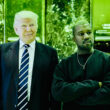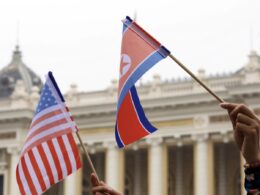When I was a pan-leftist (i.e. someone who believes the best way to advance the class struggle is by unifying the “left”), I viewed Michael Parenti as someone who was fully compatible with my ideology. Which required some contradictory thinking on my part, because Parenti made it clear that he did not view a great deal of the “left” as allies to the anti-imperialist cause. He ridiculed the types of anarchists, Trotskyists, social democrats, and so-called progressives who supported NATO’s destruction of Yugoslavia because it represented a blow against “Stalinism.”
Though I shared his disappointment in these imperialism-compatible leftists, I still viewed pan-leftism more broadly as correct, and assumed what Parenti represents was essentially the same as what I represented at that time. Then I came to understand that the class struggle doesn’t depend on Marxists investing themselves in “the left,” and thereby realized something about Parenti’s ideas which I’d never noticed: he helped give us the ideological tools we would need in order to reject pan-leftism.
He helped repudiate the liberal anti-Marxist smear of “class reductionism,” which today we ironically often see Marxists use against their own peers within the struggle. Parenti identified how accusations of class reductionism have become so prominent in our discourse due to liberal efforts at discrediting the concept of class struggle, in favor of a worldview that’s entirely focused around identities.
Parenti accounted for the importance of recognizing how different types of people experience different types of injustice; he didn’t join with the liberals in condemning so-called “orthodox” Marxism for its alleged betrayal of minorities, though. He ridiculed what he called the “anything but class” left for its identity reductionism, pointing out how its role has been to obscure what Marxism means:
The “left” ABC theorists say we are giving too much attention to class. Who exactly is doing that Surveying the mainstream academic publications, radical journals, and socialist scholars conferences, one is hard put to find much class analysis of any kind. Far from giving too much attention to class power, most U.S. writers and commentators have yet to discover the subject. While pummeling a rather minuscule Marxist Left, the ABC theorists would have us think they are doing courageous battle against hordes of Marxists who dominate intellectual discourse in this country—yet another hallucination they hold in common with conservatives.5 In their endless search for conceptual schema that might mute Marxism’s class analysis, “left” ABC theorists have twaddled for years over a false dichotomization between early Marx (culturalistic, humanistic, good) and later Marx (dogmatic, economistic, bad).6 As Marxist scholar Bertell Oilman notes, this artificial counterpoising transforms a relatively minor development in Marx’s work into a chasm between two ways of thinking that have little in common.
Parenti was reacting to the destruction of the old left, which had actually been effective at mass mobilization, and the rise of the “New Left” with its investment in identitarian academic theories. His great contributions were during the most barren era for the USA’s class struggle, where between the 1970s and the 2010s, U.S. “Marxism” almost entirely existed in the form of liberal academia. At that time, Parenti was one of the few people on the left with integrity. While much or even most of the U.S. “left” as it existed in the 90s was celebrating the USSR’s demise, Parenti was defending the USSR’s legacy. While even most “Marxists” in the U.S. were repeating the atrocity propaganda against Serbia, Parenti was explaining the absurdity of the narrative about Milosevic being a “war criminal.”
He interpreted China’s conditions differently from how myself and many other modern Marxists interpret them, concluding that the PRC had betrayed its socialist gains. But even this was understandable at the time, because when he made these statements, the Deng reforms hadn’t yet had the time to be fully proven as necessary. Now we can see China reversing its capitalistic shift (to the lament of the imperialists), and building upon the living standard gains which the market reforms made possible. Partly for this reason, pro-China communists like myself hold Parenti in great esteem, despite this one thing history has proven him wrong about. When he was able to, he used his platform to advance scientific socialism amid an era where socialism was on the retreat. His legacy is to provide crucial resources for the next generation of communists.
Over the last twenty years, when socialism and anti-imperialism have come to again make great gains, there have arisen many within this new generation who’ve interpreted Parenti’s teachings in a confused way. In the same way I used to, where I thought that he was just adding credibility to my pan-leftist orientation. But it’s a mistake to consume Parenti while clinging to pan-leftism. Because essentially everything Parenti said and did was a repudiation of the same mentality which pan-leftism is based around. What he did was refuse to compromise his revolutionary principles for the sake of appeasing anybody on the “left” who might not share these values. He rejected opportunism and cowardice, which are the things that motivate somebody to take a certain stance just to fit in with a group.
For an example of how his way of operating contrasts with the culture of modern “woke” circles, this is an example of something he wrote which was basically correct, yet would get him canceled within the main online “Marxist” spaces if he wrote it today:
Real patriots ally themselves with that first America [Senator John] Edwards describes. They struggle for fundamental social change. They want to tax the rich, not low-income working people. They want to develop renewable nonpolluting wind, tidal, and solar energy sources, and swift safe mass transit systems with less reliance on toxic fossil fuels. In contrast to the profit-oriented conservative superpatriots who repeatedly profess their love for America but seemed unconcerned about America’s forests, rivers, wildlife, wetlands, water supplies, and overall ecological health, the real patriot puts environmental concerns before everything else, for without a livable ecology nothing else will survive.
The only part of this statement I take issue with is the one about using taxes to pay for these things, since I believe socialist Korea’s post-taxes system is what communists should aspire to. The reason why I believe today’s pan-leftist Marxists would hate somebody for saying this is because he argues that patriotism can be a good thing. Among the USA’s pro-China communists, there’s emerged an element that seeks to maintain pan-leftism’s dominance over Marxism by obsessively attacking “patsocs,” as in socialists who utilize patriotism. I used to be part of this element, until the Ukraine conflict showed me just how urgent our task of advancing anti-imperialism is. The only thing that can make patriotism divide Marxist-Leninists is us choosing to let it divide us. We can’t turn it into the primary debate, and divert attention away from our foremost task of combating U.S. hegemony. Because of we get distracted from that, the struggle will fail.
Since Parenti made his final contributions to the struggle during the early-to-mid 2010s, communism has risen within the USA’s popular consciousness to an unprecedented degree (at least for our own lifetime). This is because the ongoing depression the country’s working class has been in since 2008 is spurring more and more people to learn about Marxism. At the same time, it’s become apparent in recent years that the decline of Washington’s influence is bringing about the birth of a new global order. An order that’s based not in imperial domination, but in international cooperation, where China, Russia, Iran, and their adjacent countries work to further each other’s development. A great amount of this era’s developing radicals have responded to these events by becoming pro-China Marxists, and they’ve been right to do so. The problem is that the forces of pan-leftism are working to divert them away from Parenti’s mode of practice, and towards the practice of the unprincipled leftists who Parenti decried.
The ideological confusion that we’ve seen within this layer of the new ML generation, where many have embraced anti-imperialism in theory yet cling to radical liberal habits, must be combated. There are efforts by orgs like PSL to separate Russia from the other countries fighting imperialism, simply because Russia is unpopular among liberals and leftists. There are figures like Ben Norton, who claim to support multipolarity yet attack other anti-imperialists for not investing in pan-leftism. We need to get beyond this underdeveloped stage within modern Marxism, and truly carry on the legacy of fighters like Parenti. We have to follow in his example, and always act foremost with the desire to advance the struggle—not with the desire to build influence inside the “left.” Though the ones who have been following in Parenti’s anti-opportunist path are relatively small, there are many of them, and their numbers will only continue to grow.
————————————————————————
If you appreciate my work, I hope you become a one-time or regular donor to my Patreon account. Like most of us, I’m feeling the economic pressures amid late-stage capitalism, and I need money to keep fighting for a new system that works for all of us. Go to my Patreon here.
To keep this platform effective amid the censorship against dissenting voices, join my Telegram channel.








